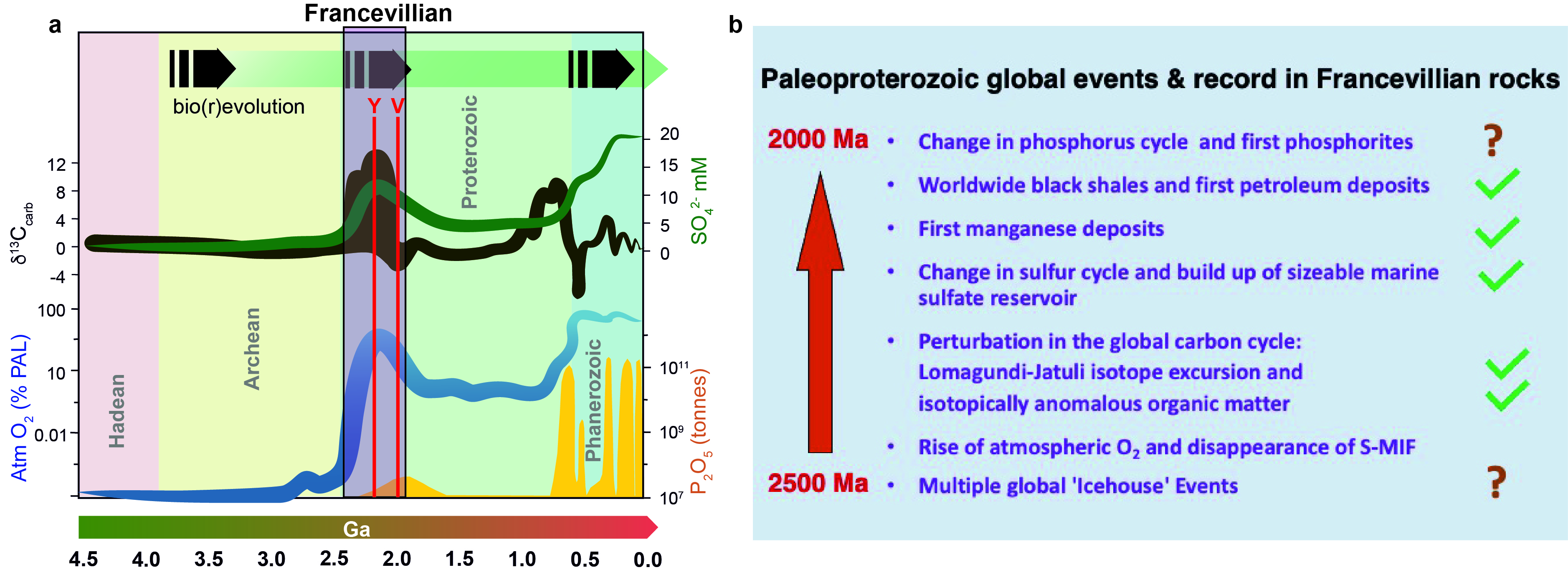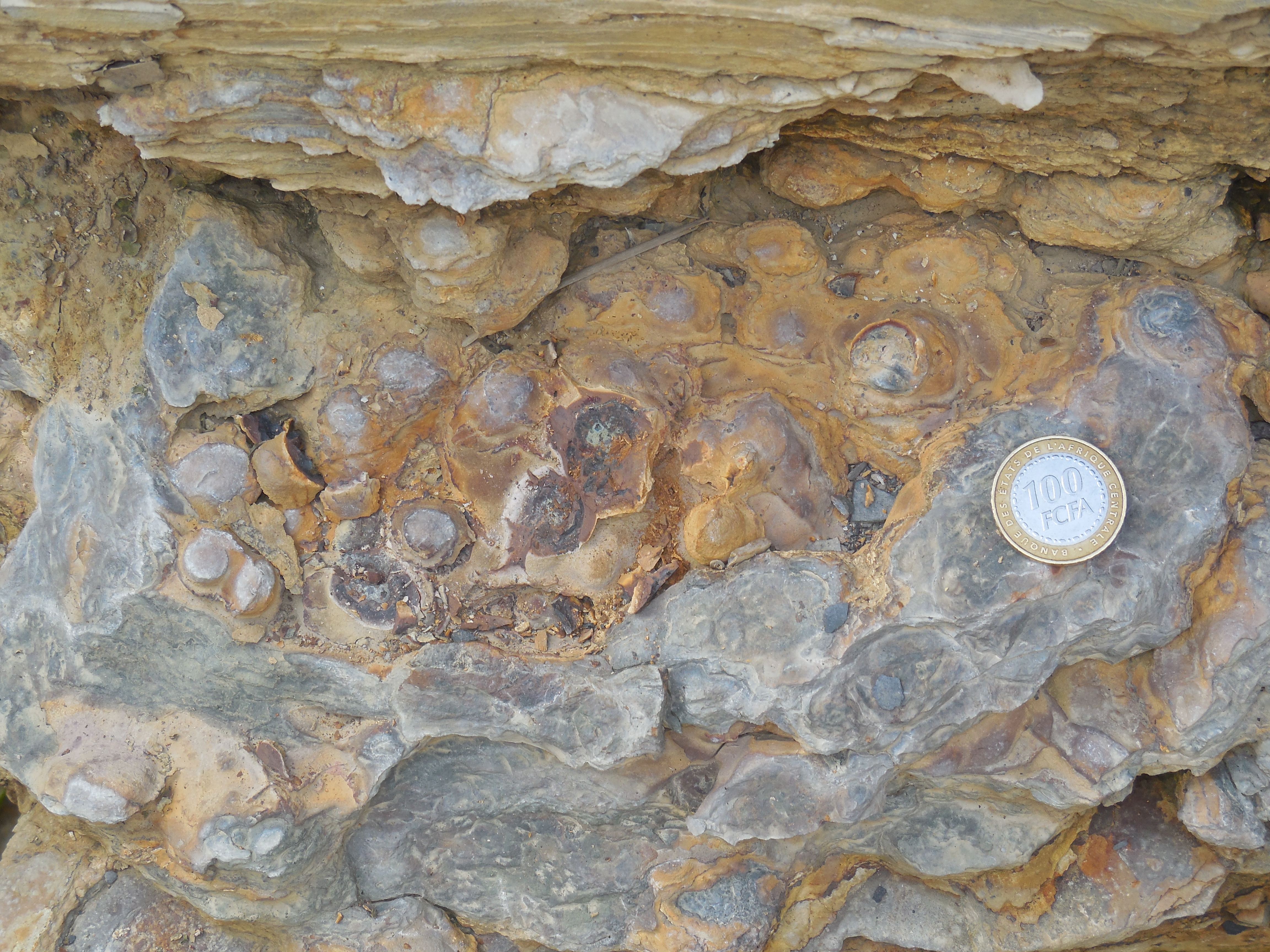The Gabon and Oxygenation of Earth – Deep Early Earth Project
The Gabon and Oxygenation of Earth – Deep Early Earth Project (GOE-DEEP) is a decadal-long project involving a consortium of researchers from 14 countries. GOE-DEEP has just been awarded 1.6M USD (with participating countries to deliver an equivalent in matched funding) from the International Continental Scientific Drilling Program (based in Potsdam, Germany) to drill and recover a total of 3 km of fresh core through the two-billion-year-old rocks of the Francevillian Succession in Gabon. That succession is unmatched as an archive of the most profound transformation in Earth history of our planet’s surface environments, one in which the atmosphere and upper layers of the oceans transitioned from an anoxic to oxic state in concert with the evolutionary development of aerobic marine microbial ecosystems and eukaryotic organisms. The succession also houses some of the world’s richest Mn and U deposits, key sources of wealth creation for Gabon. Tony Prave and Eva Stüeken are St Andrews’ representatives to GOE-DEEP, the former as one of the four Central Science Team coordinators and Eva Stüeken as a member of GOE-DEEP’s Geochemistry research theme. Drilling is projected to begin in summer 2025.

Figure. (a) Key trends in Earth history reveal that early Paleoproterozoic time records the largest step changes in ocean-atmosphere redox accompanied by the greatest ever perturbation of the C cycle (after Pufahl & Hiatt 2012; Lyons et al. 2014). Y, V – Yarrabubba and Vredefort impact events. (b) The Francevillian succession spans the time interval of many these events as shown by their known () and potential (?) preservation therein.

Manganiferous nodules and crusts. These precipitated along an ancient (c. 2.0 Byr ago) redox front between upwelling metal-bearing and anoxic deep waters and overlying more oxygen-rich upper surface waters.